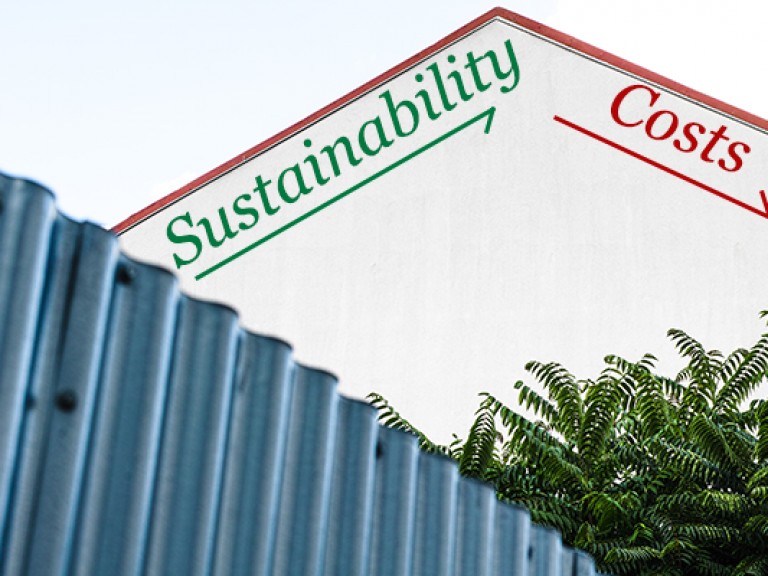
Optimize Your Income
Key Points to Remember
Affordability
Ninety percent of people rents because they can’t afford to buy. That’s where the demand is. To take advantage of that demand, you need to buy the kind of property that you can afford to rent out at a percentage of the average income that prospective renters will be able to afford. In 2002, I didn’t have a single property in my passive investment portfolio over $300,000.
Vacancy
Remember, cash is like oxygen: if you run out of it, you’re in trouble. Nothing starves your cash flow like owning a rental property that nobody is renting. Ask real estate agents about vacancy rates in the area and never buy in an area with more than three percent vacancy rates.
• Focus on areas close to the kind of amenities renters look for.
• Bear in mind that the vacancy rate of units/townhouses is double that of houses in most areas so go for affordable detached housing.
• Invest in areas with no more than 30 percent of homes occupied by renters.
Market Rent
Find out what the market rent in the area is. Undercut it by five percent and you’ll always find tenants.
• Buy rental property on which the market rate of rent is no more than 30 percent of the average wage.
Rental? But that means TENANTS!
Because concerns about tenant hassles can act as a bit of a de-motivator, we’ll summarise the key points here.
Set rents just below the market rate
This gives you greater discretion in choosing your tenants, increases the likelihood that they will continue to be able to afford the rent and tends to create a degree of loyalty and cooperation. At the end of the day, $10–20 per week off your bottom line is a small price to pay for a comparatively hassle-tree tenancy, especially by the time you’re the landlord of 4–5 properties.
Check out prospective tenants the way you would a prospective employee
You need to know:
• Do they have a job, and how long have they been at that job? (Does the employer back this up?)
• Where have they lived for the last five years? Did they pay the rent? Was the bond refunded in full? (Does the previous landlord back this up?)
I always use a managing agent to do the vetting of tenants for me: it’s one of those things that doesn’t need to be ‘personal.’
Cover the costs of the unexpected
Things happen. And it’s inevitable that you’re going to lose a tenant or two over a 10–12 year period. From time-to-time, you’ll have to take a couple of weeks to clean the place up and find new tenants. It’s a normal part of the rental business: get used to the idea and plan accordingly.
• Get all tenants to lodge a rental bond, equivalent to at least one month's rent.
• Require all tenants to pay their rent in advance: preferably by the month, but at least fortnightly. (If they’re late with their rent, the agent should be on alert to advise you within one or two days, so that arrangements can be made with the tenant, or if they are having longer-term financial difficulties so that notices can be given.)
Take out landlord protection insurance, to cover you against the risk of tenants defaulting on rent or leaving without notice (if the outstanding amount is not already covered by the bond).
• Insure the building and contents against accidental damage, fire, theft and malicious damage by the tenant. (Despite the stories on current affairs programs, the malicious damage is comparatively rare.)
• Set aside a contingency fund of two months’ rent, plus the amount of the excess payable on any insurance claim: that’s usually enough to give everybody some leeway in the event of unforeseen problems.
Get someone else to take on the management tasks – and hassles – for you
Perhaps the most important decision you will have to make in managing the rental of your property is the selection of a managing agent to do it for you.
Find one who is well established. Look for a full-time property manager with a large, relatively long-term rent roll and few vacancies. Ask the agent for a reference from some of his or her landlords. Don’t fall into the trap of going with the agent who promises you the highest rent: this is not necessarily an indicator of ability to manage a property successfully.
Agree exactly what it is that the agent will do for you. Services include:
• Supplying you with a fully-itemized monthly statement of income and expenses
• Conducting full internal and external property inspections prior to letting – and every three months
• Providing direct payment of rent into the bank account of your choice, or by cheque posted directly to you
• Lodging all bonds with the Bond Board, paying accounts (with your permission and on your behalf) and attending to all leases and notices pertaining to the property
• Liaising with all trades people and inspecting all work prior to payment
• Checking all potential tenants’ references, prior to consulting with you on their acceptability
• Conducting all communication with tenants.
Most competent agents will do all of the above, included in their management fee.
Above all - Don't panic!
Okay, we’ve all heard the urban myths about bikie gangs and people living for years in mounting squalor without paying their rent. But I’ve rarely had anybody in my rental properties who even appeared to have read the Tenant From Hell Handbook, let alone attempted to live that way. If you’ve planned for contingencies, as described above, you’ll be pretty well covered for problems.
I can honestly say that I’ve never had such a bad experience with tenants that I’ve been tempted to wash my hands of a residential portfolio – or the wealth that comes with it!
>>> Coming Next: Maximize Your Tax Benefits
Please note: This is an extract from the Success From Scratch – it may not contain the exercises from the full version of the book/audio set, for full version please contact us or follow our blog for more.
Thank you,
The team@Custodian








